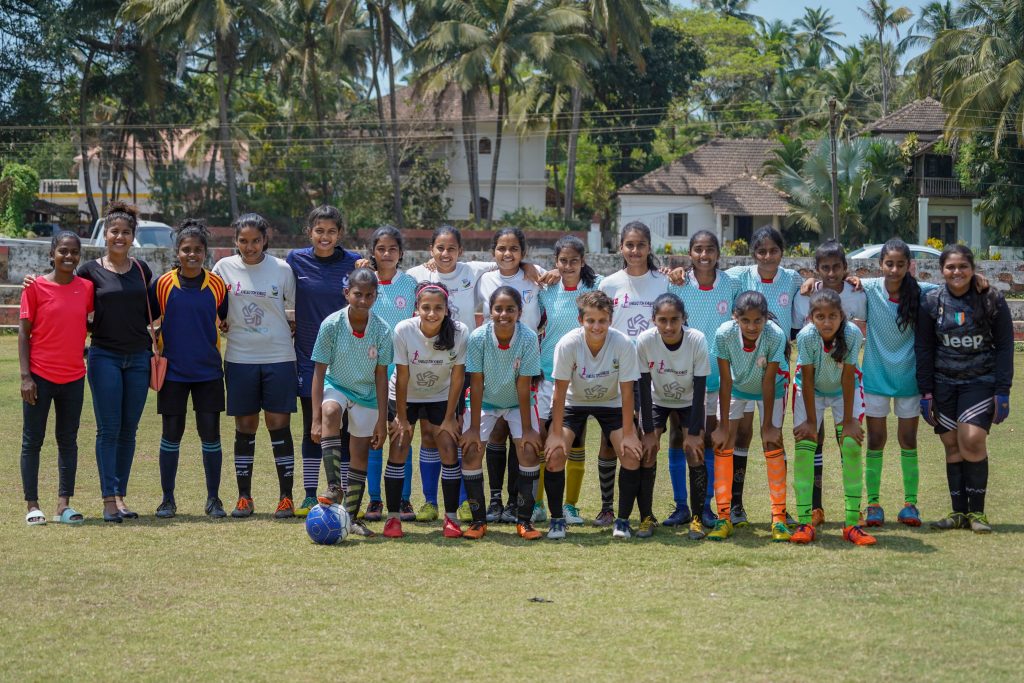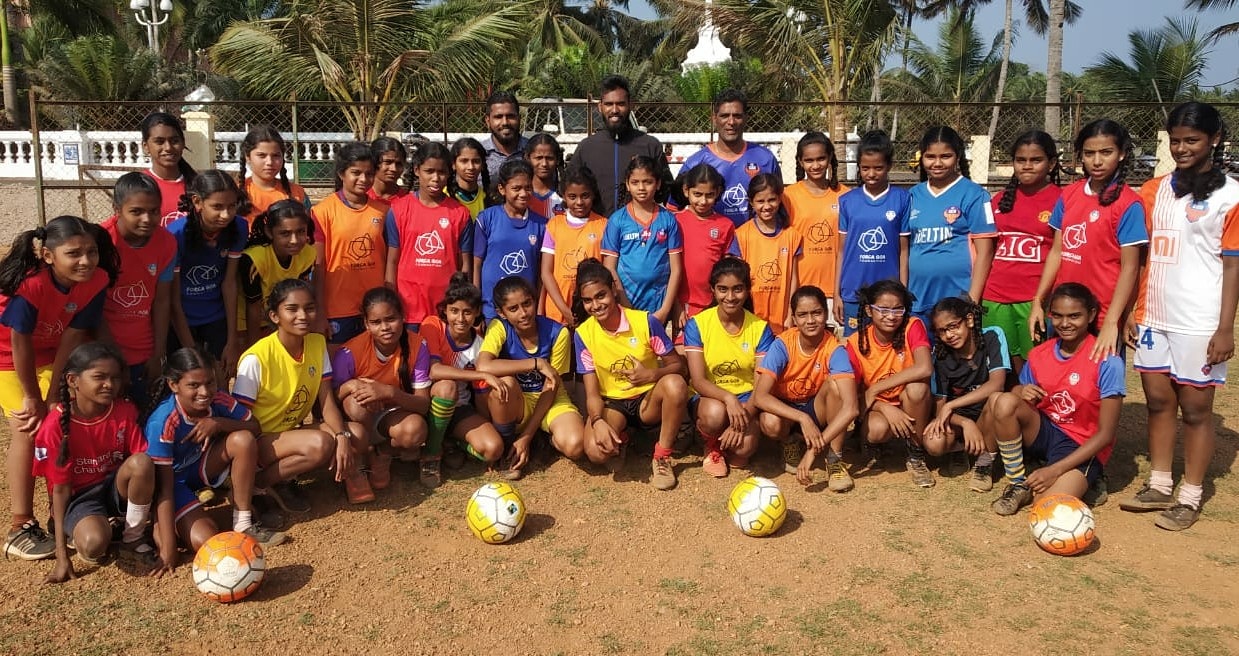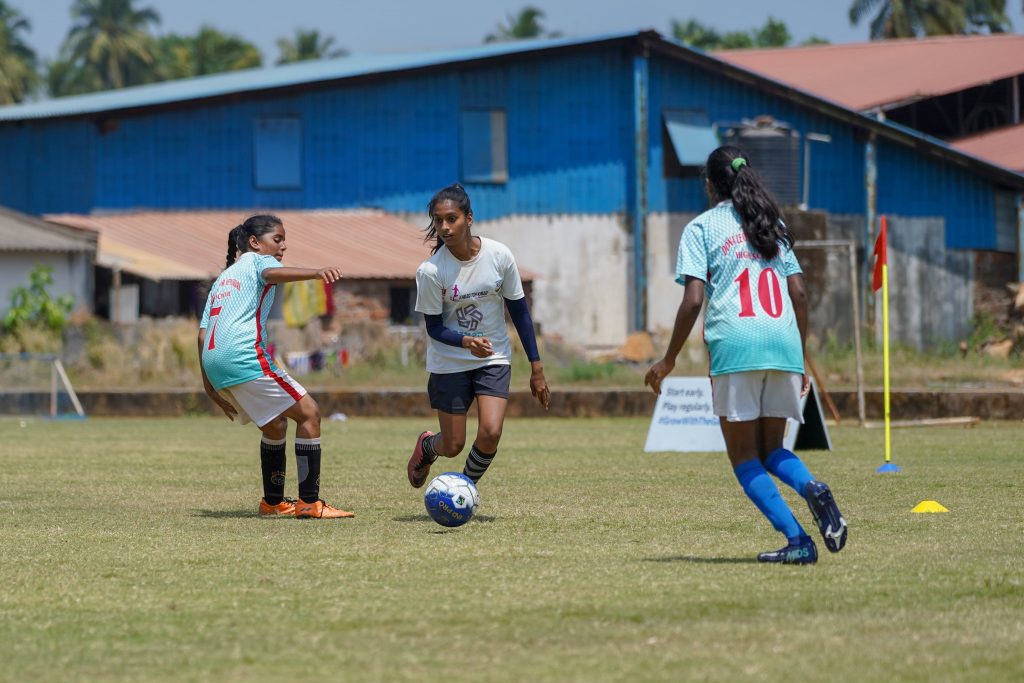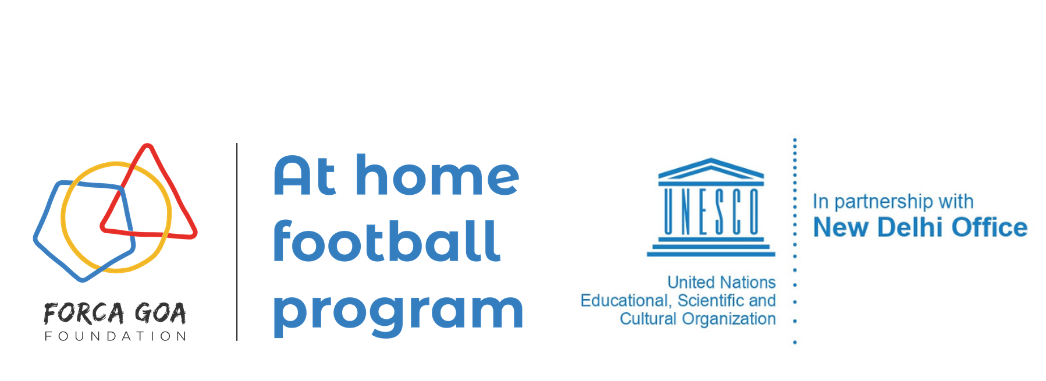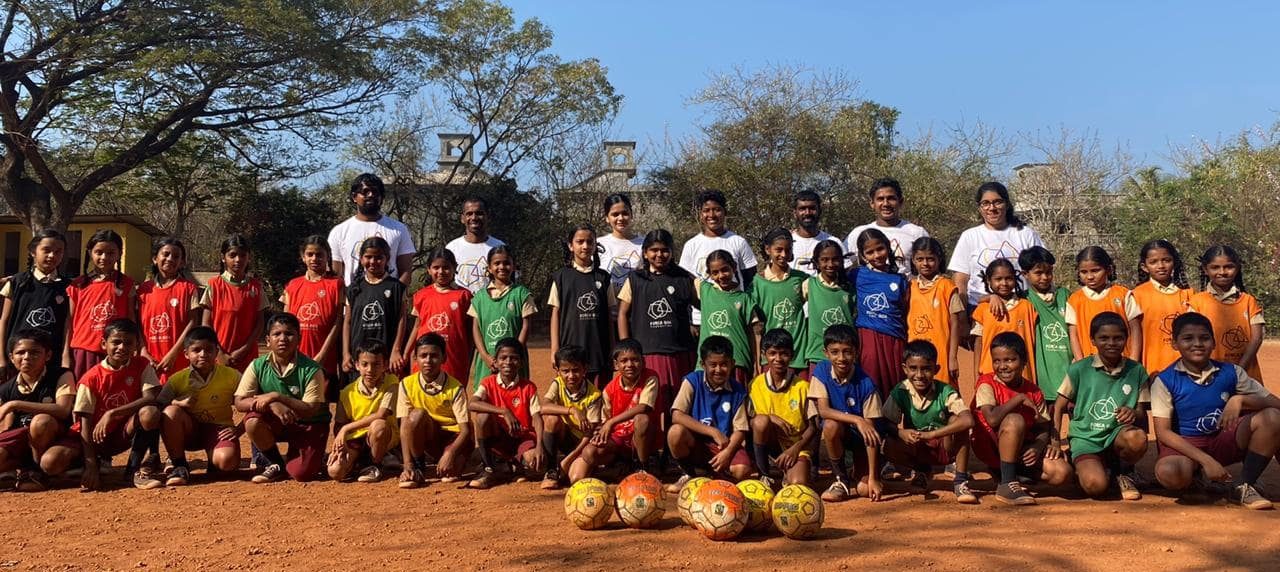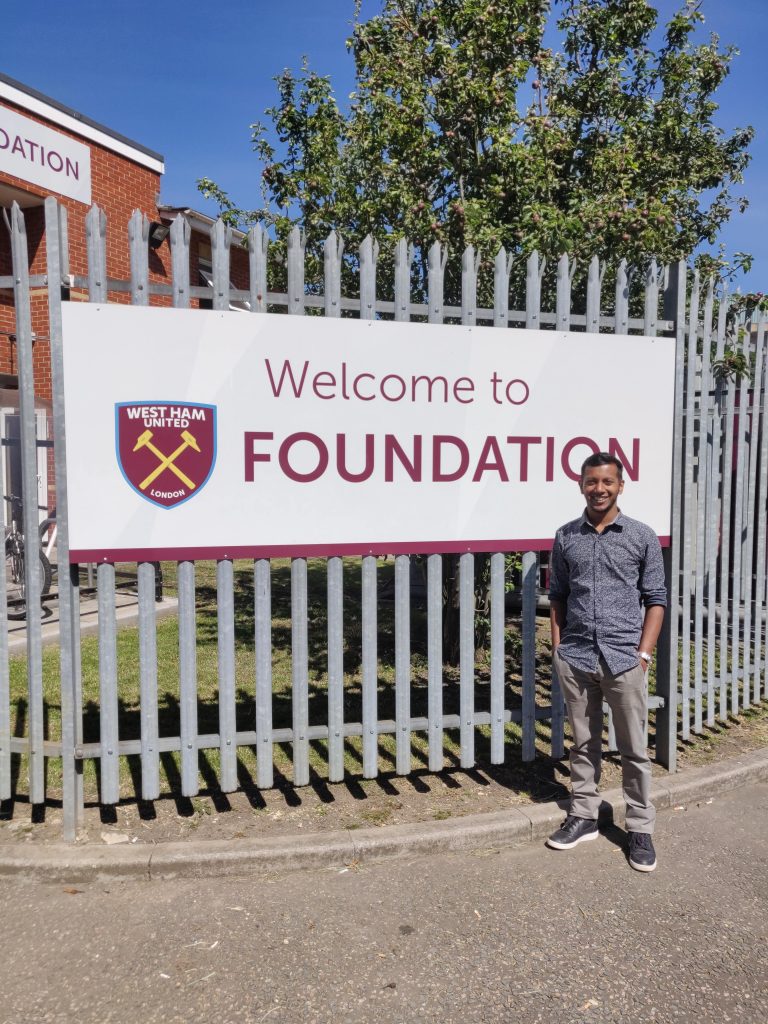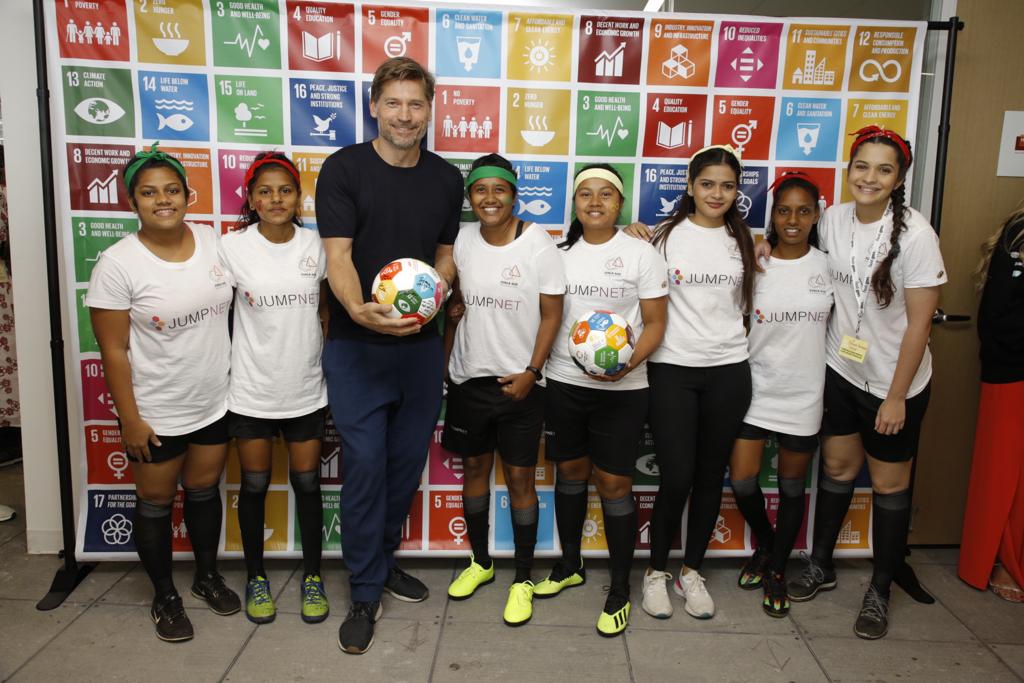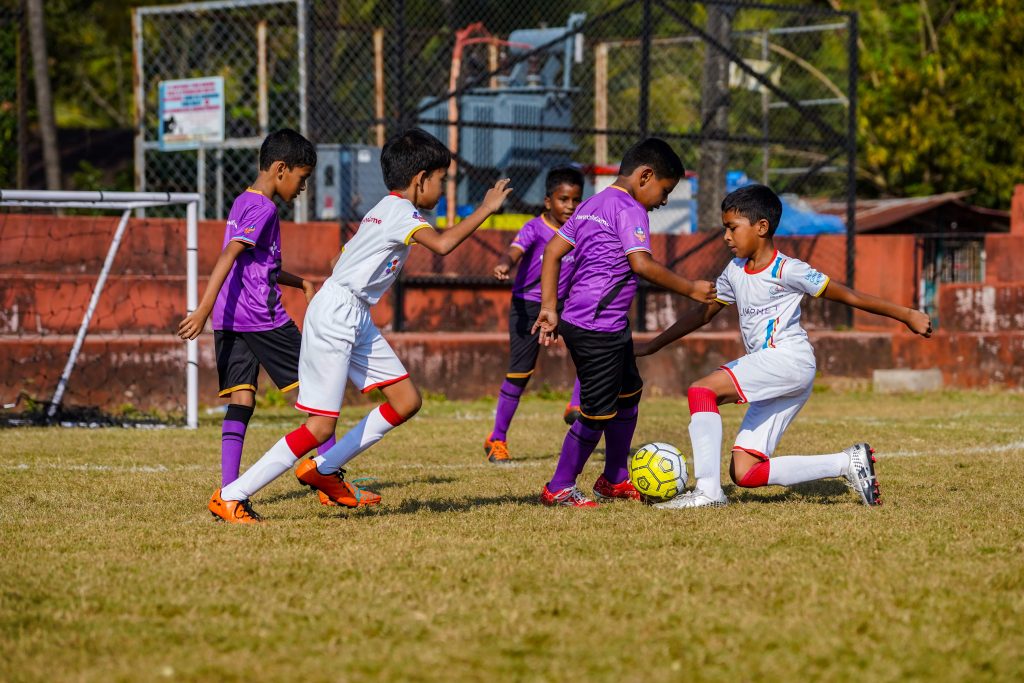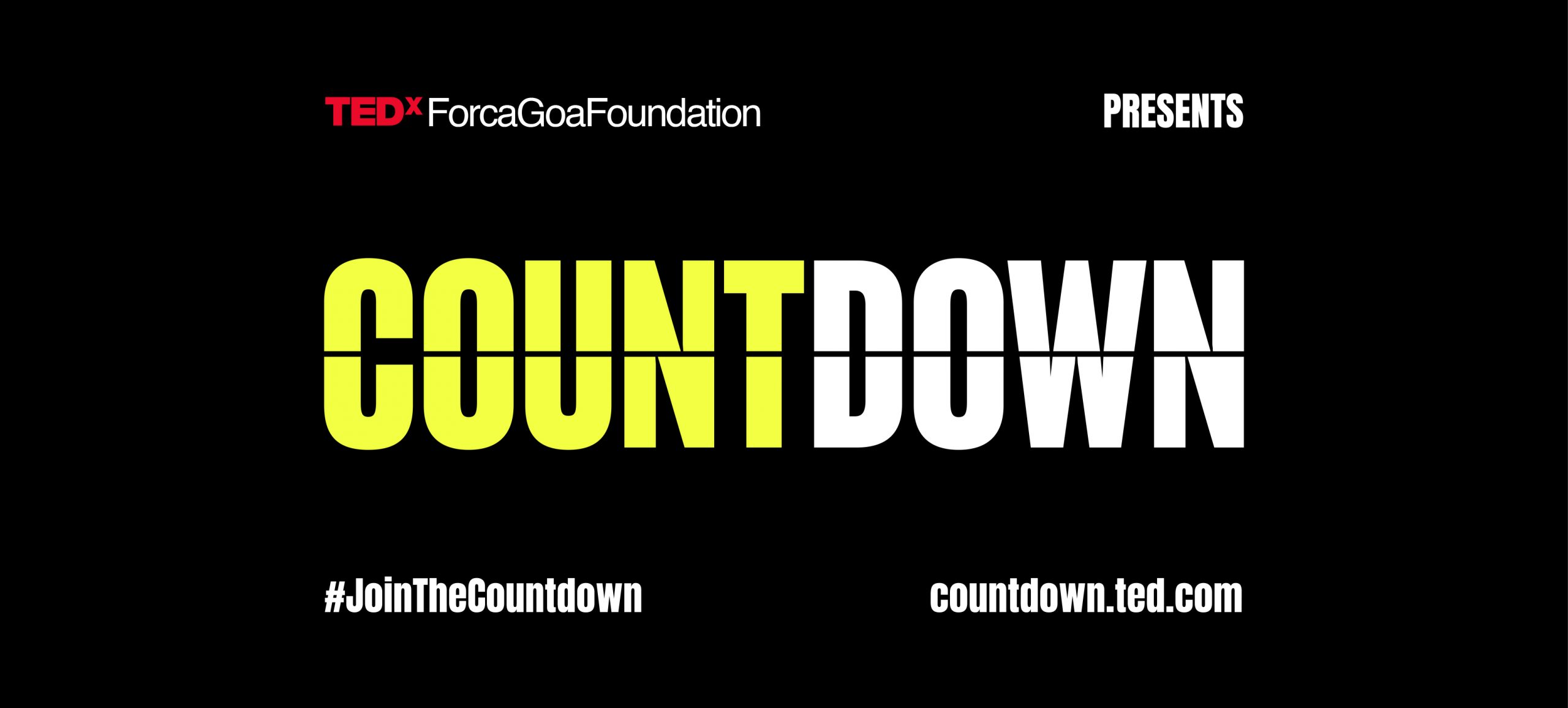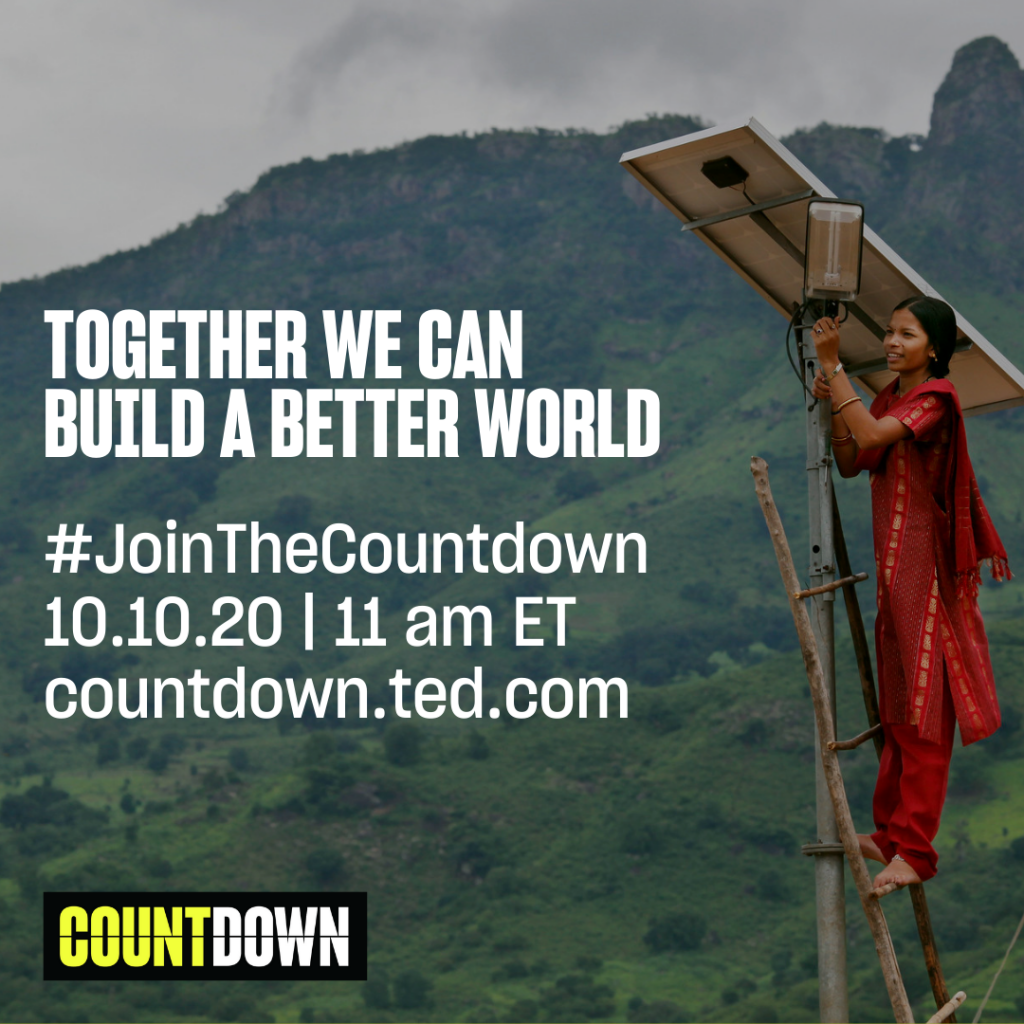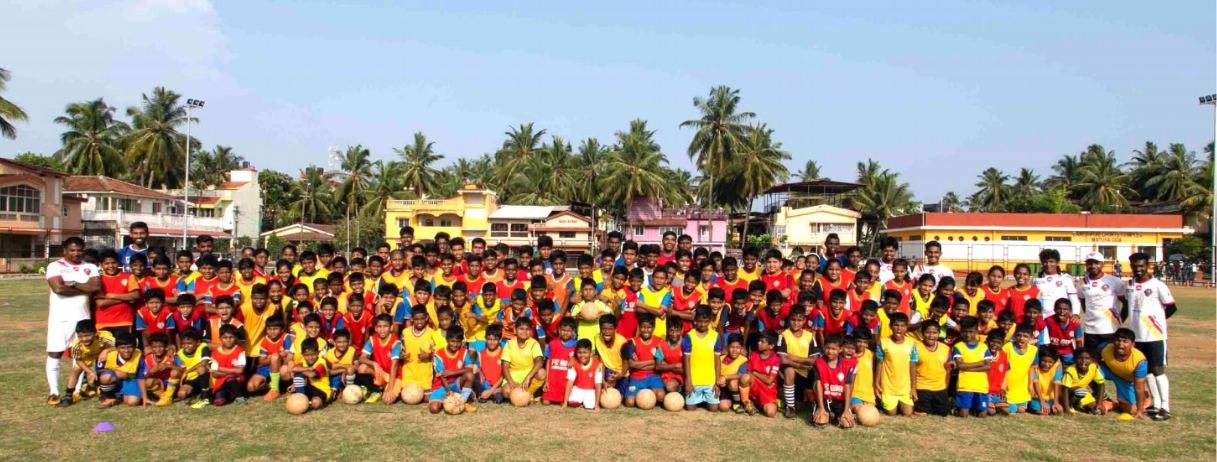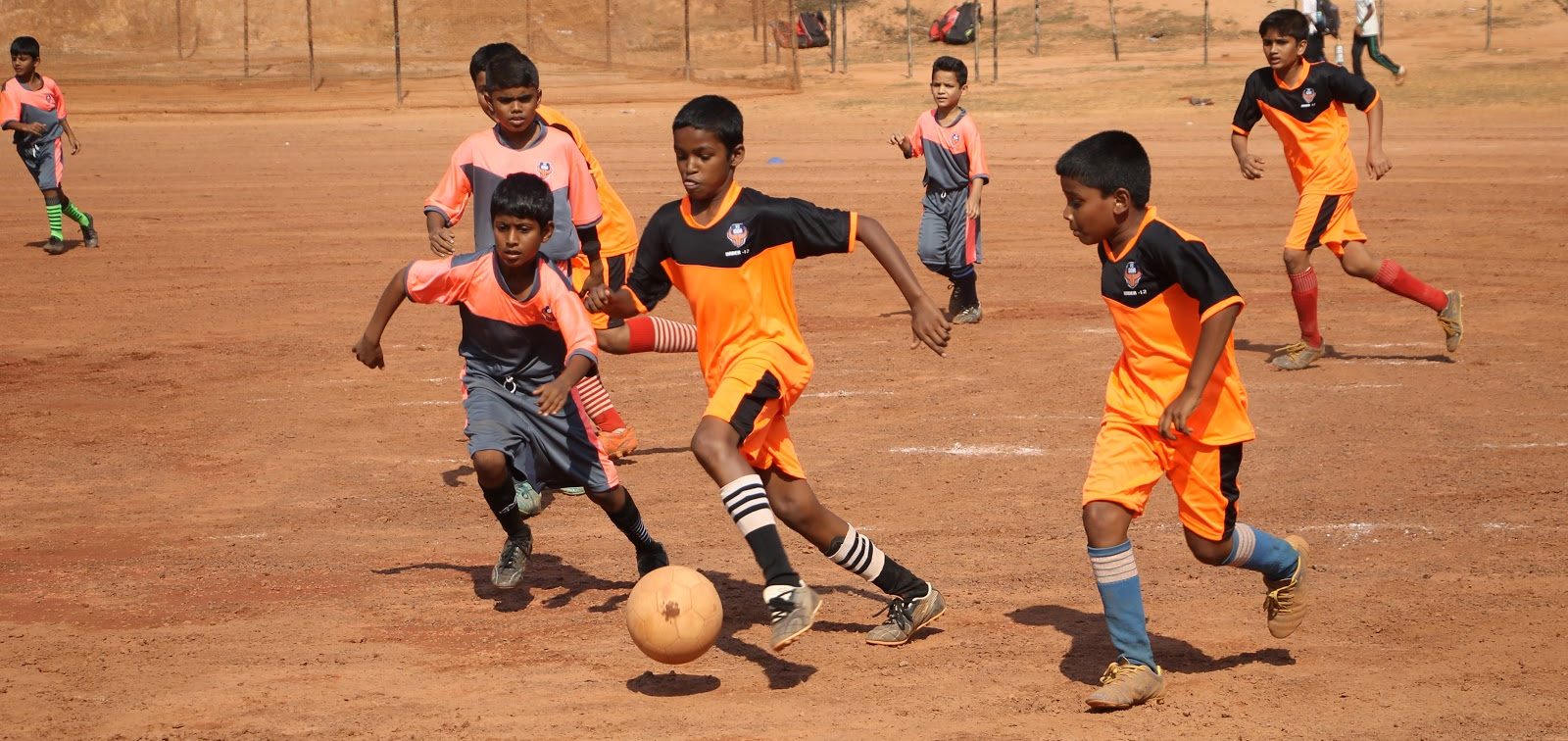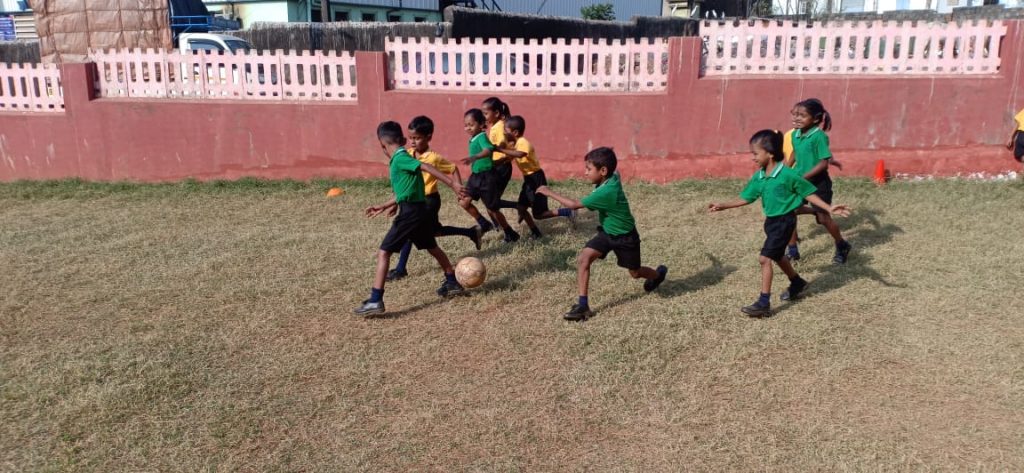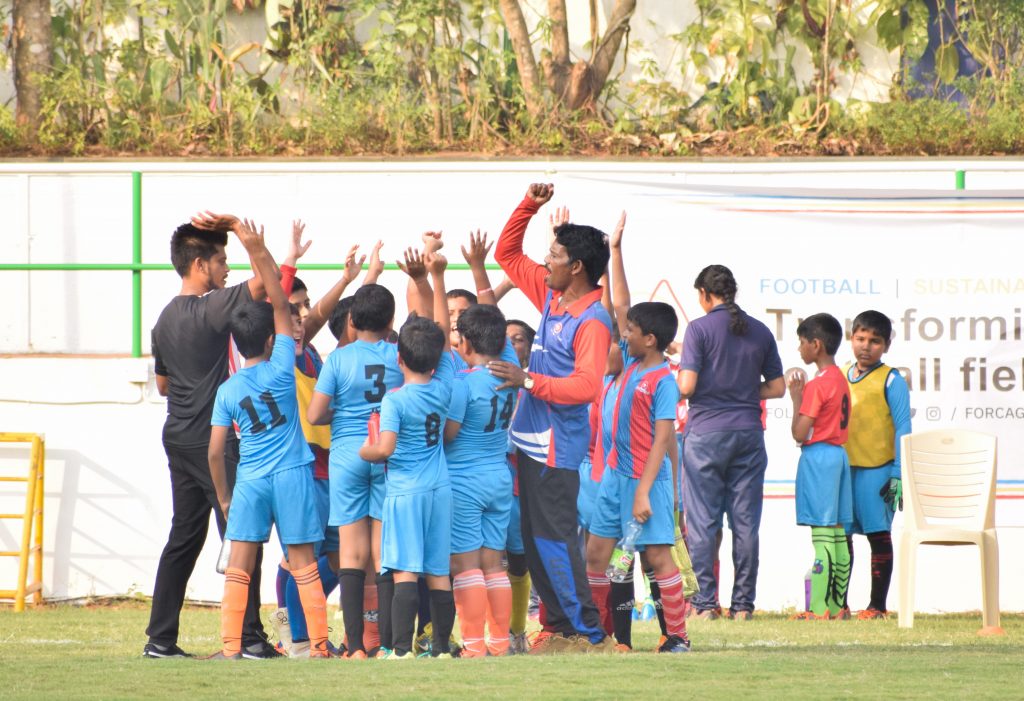
The Sustainable Development Goals are a universal call to action for all human beings to start working on building a better world for a safe and healthy future. While the goals address large global challenges, they can only truly be achieved when each individual takes action towards the goals. In light of this, it is important to raise awareness of the UN Sustainable Development Goals. This will allow individuals to understand what actionable steps can be taken to work towards the SDGs. The Foundation, through its sports programs, works towards 3 of the 17 SDGs. These are SDG 3 Good health and wellbeing, SDG 5 – Gender Equality and SDG 12 – Responsible Consumption and Production.
Over the years, we have witnessed many like-minded organisations working towards the achievement of various SDGs through holistic sports programs. Why sport? Sport, especially team sports, has proved itself to be an effective medium that can impact a large number of people. It has the power to build a community that understands the value of working together towards a goal.
Football for development
Most sports organisations support SDG 3 – Good health and wellbeing in the simplest form – through physical activity. Participating in sports improves physical fitness and also promotes mental well-being. Khel Khel Mein Foundation, JustForKicks, Indian Football Foundation and Right To Play are just a few of the organisations with sports-based programs for children and youth that promote healthy living and exercise. We at the Forca Goa Foundation have based all our programs on playing and training. This allows children to enjoy football and also stay healthy.
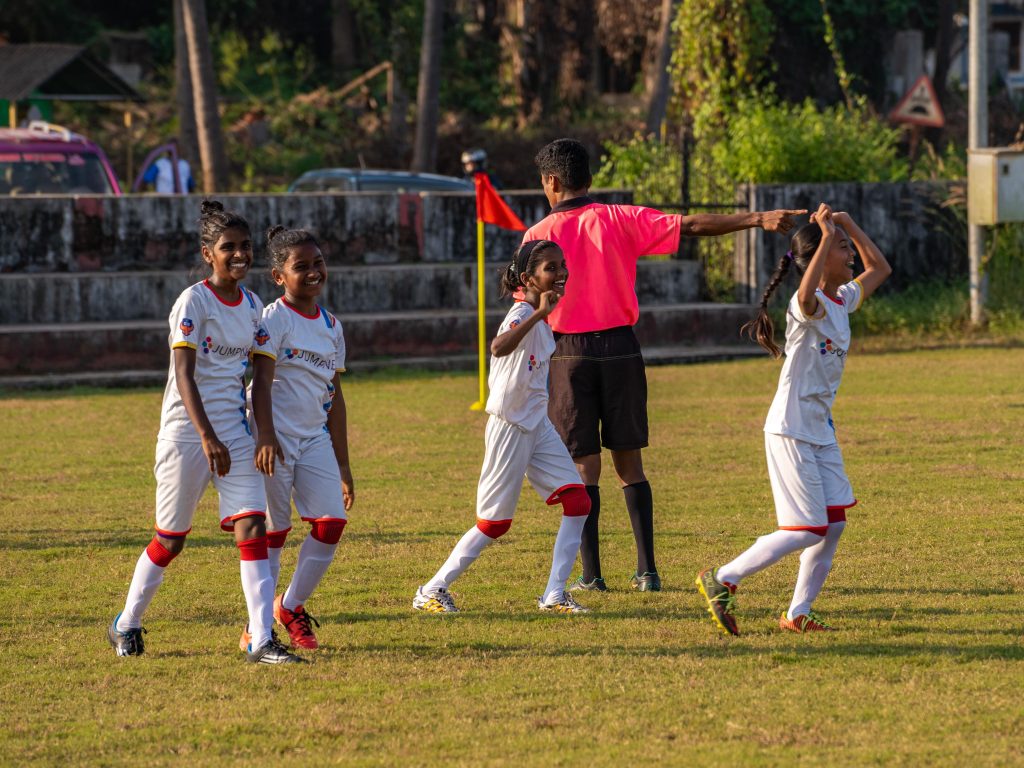
Quality Education (SDG 4) is another aspect many sports organisations focus on. In India, the Oscar Foundation has done outstanding work in providing education to underprivileged children. Their policy ‘No School – No Football’ has worked wonders by impacting over 12000 children in 9 years. Another organisation that is working tirelessly towards SDG4 and SDG5 – Gender Equality is Yuwa, a football program in rural Jharkhand. Yuwa utilises the power of the beautiful game to educate young girls prone to child marriage and human trafficking. The program helps girls realise that they can achieve whatever they set their minds to. It encourages them to follow their dreams.
Alakhpura FC in Punjab, Rani Laxmibai sports club in Sivan, The Mahila Jan Adhikar Samiti in Ajmer are some others that work closely with girls and women to empower them through football. In Goa, the Foundation is not just focussed on getting girls into the game but also on getting more female coaches and referees. Our U12 Little Gaurs League is exclusively for girls in order to increase their participation in the game.
Building a community for change
SDG 11 aims to make cities and communities inclusive, safe, resilient and sustainable. One organisation that must be noted for their work here is the Recognise, Rise and Empower Association (RREA) based in Manipur. The organisation has managed to utilise football to bring about peace in an area that had a history of violence owing to tribal feuds. Through their program, they have made the region safe and inclusive.
The Forca Goa Foundation has made some major strides when it comes to SDG 12 – Sustainable Consumption and Production. Our biggest step was when we took the pledge to source our footballs from a Fairtrade vendor only. We are the first sports organisation in India to take such a pledge. You can read more about our journey here. Not only this, but we also teach children about sustainable consumption through workshops on waste management.
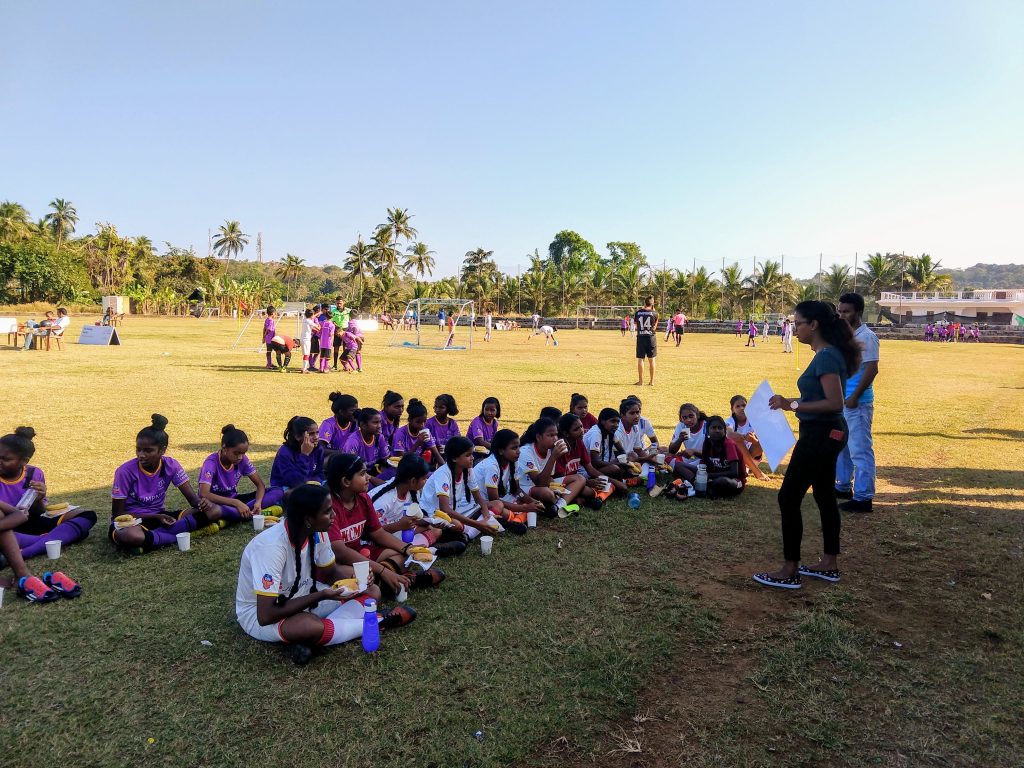
Collaboration for the goals (SDG 17) is crucial as together we can achieve more than what we achieve by ourselves. A key aspect through our programs has been partnerships with different organisations/individuals who can add value to our sessions. Whether it’s a nutritionist sharing knowledge about healthy eating with children or an international organisation like UNESCO helping us reach out to children, partnerships contribute to the progress of our goals. Another organisation that makes use of partnerships to make a global impact is Coaches Across Continents. They have partnered with Slum Soccer in India. CAC provides guidance and knowledge to the coaches at Slum Soccer. It helps them learn and solve any issues they might face on the field.
These are just a few out of the thousands of sports organisations that are working towards one or more SDGs. While the Coronavirus had thrown us off track, we are sure that not just these few, but each and every organisation is striving to do their best for a sustainable future.


